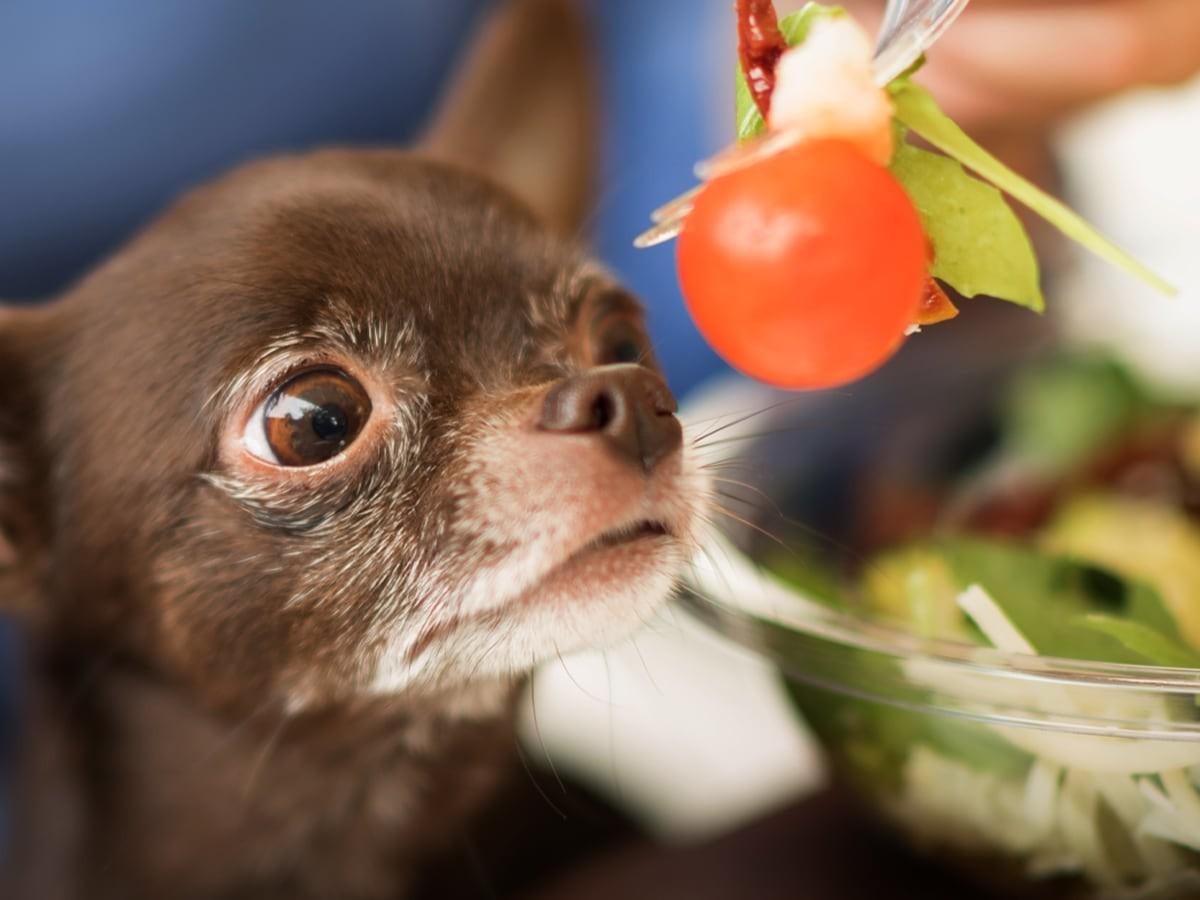Are you curious if your dog can enjoy tomatoes along with you? While those juicy red fruits might be a staple in your diet, it's important to understand the nuances of feeding them to your pet. Let's delve into the world of dogs and tomatoes, exploring safety, benefits, risks, and how to incorporate this popular fruit into your dog's diet safely.
Is It Safe for Dogs to Eat Tomatoes?
The answer is both yes and no. Ripe tomatoes are non-toxic and can be a healthy treat for dogs in moderation. They offer benefits like fiber, which aids digestion, and essential nutrients like vitamins and antioxidants. However, green tomatoes and the leaves and stems of tomato plants should be avoided as they contain solanine, a compound toxic to dogs.1
Can Dogs Eat Raw or Cooked Tomatoes?
Ripe tomatoes, whether raw or cooked, can be given to your dog in moderation. However, it's important to avoid feeding them to your dog in large quantities or too frequently. Cooking tomatoes can actually make them easier to digest for some dogs.2 Just be sure to avoid adding any seasonings or other ingredients that could be harmful to your pet.
Health Benefits of Tomatoes for Dogs
Tomatoes offer several health benefits for your canine companion:
Vitamins and Minerals: Tomatoes are a good source of vitamins C, K1, and folate, as well as potassium, all essential for various bodily functions.
Fiber: The fiber content aids in digestion and can help regulate bowel movements.
Antioxidants: Tomatoes contain antioxidants, which help protect cells from damage.
Risks of Feeding Tomatoes to Dogs
While ripe tomatoes are generally safe, be mindful of these potential risks:
What Vegetables Can Dogs Eat?
What vegetables can dogs eat? There are many vegetables that are safe and healthy for dogs to eat.3 Some popular options include:
Beets
Broccoli
Brussels sprouts
Carrots
Celery
Corn
Green beans
Peas
Spinach
Sweet potatoes
These vegetables are not only easily digestible but also packed with essential nutrients that can benefit your dog's health.
How Much Tomato Can I Give My Dog?
The appropriate of tomato your dog can eat depends on their size, age, and overall diet. Start with a small amount and gradually increase it as long as your dog doesn't experience any digestive upset. Remember, tomatoes should be a treat, not a meal replacement.
Expert Insights From Spot
While sharing our favorite foods with our pets can be tempting, it's important to remember that not all human foods are safe for dogs. Spot's internal data shows that pet insurance claims for dietary indiscretions average $572,* underscoring the importance of caution and research before sharing snacks with our pets. Being mindful of what treats we share with our pets can help keep them healthy while helping pet parents avoid unnecessary vet bills.
Key Takeaways
Ripe tomatoes can be a healthy and tasty treat for your dog when given in moderation and prepared properly. However, it's important to be aware of the potential risks associated with unripe tomatoes and other parts of the plant. As always, consult your veterinarian if you have any questions or concerns about your dog's diet.
By following these guidelines and prioritizing your dog's health, you can ensure that both you and your dog can enjoy the benefits of this versatile fruit together. Remember, a balanced and nutritious diet is essential for your dog's overall well-being.

The resident animal enthusiast at Spot. I have a lifetime of pet parent experience. If it has fur, feathers, or scales, I’ve probably shared my home with it. I aim to be a reliable source, blending experience with a dedication to the well-being of pets.
*Jan 2019 to Aug 2024 Spot Pet Insurance Services, LLC claims data.
Burke, Anna. “Can Dogs Eat Tomatoes?” American Kennel Club, American Kennel Club, 28 Feb. 2022, www.akc.org/expert-advice/nutrition/can-dogs-eat-tomatoes/.
“Can Dogs Eat Tomatoes? Read before You Feed.” Purina, www.purina.co.uk/articles/dogs/feeding/what-dogs-eat/can-dogs-eat-tomatoes.
Rodriguez Rojas, Biance. “What Vegetables Can Dogs Eat?” Money, 1 Mar. 2024, money.com/what-vegetables-can-dogs-eat/.
The information presented in this article is for educational and informational purposes only and does not constitute or substitute for the advice of your veterinarian.












